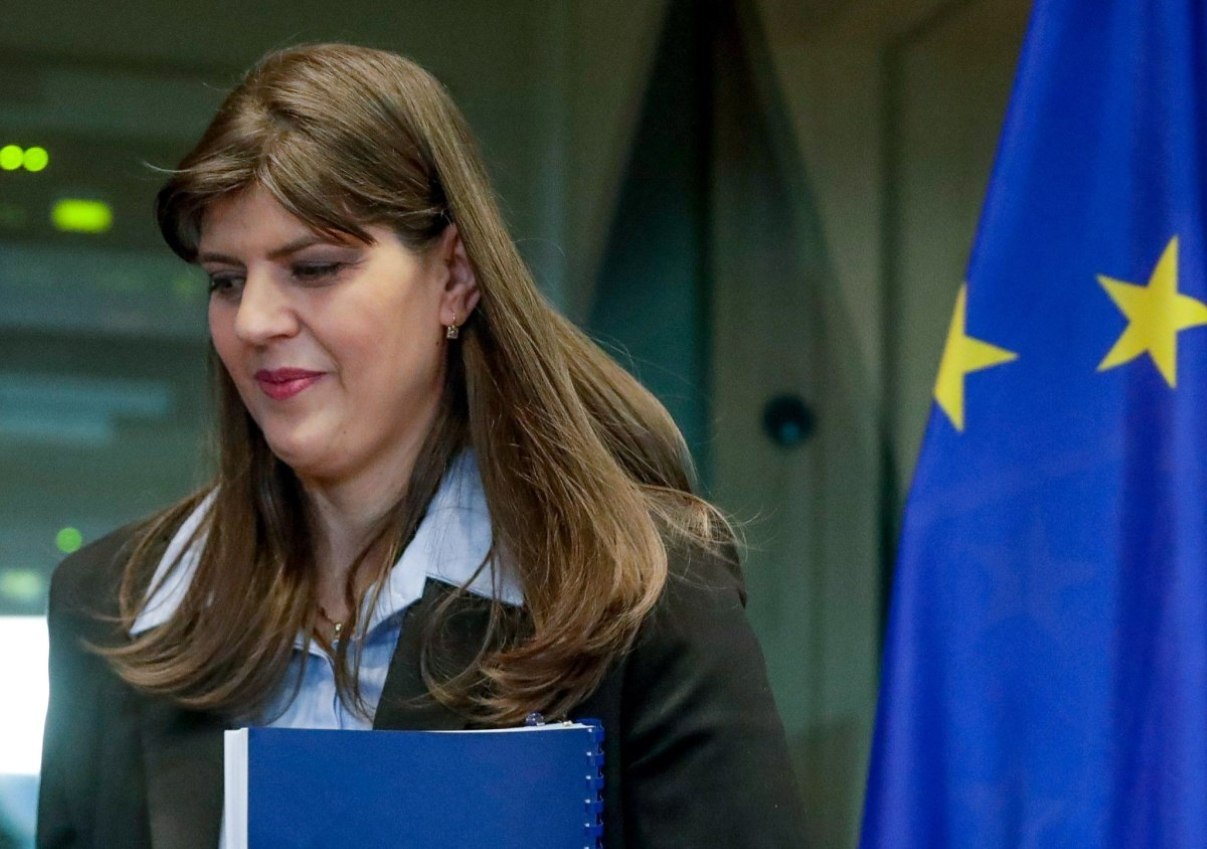European Chief Prosecutor Laura Codruța Kövesi said Greece was among only three European countries, the others being Croatia and Slovakia, that attempted to exercise political influence “one way or another” on her work as the top prosecutor of the European Public Prosecutor’s Office (EPPO).
In an interview with Romanian newspaper Libertatea, Kövesi, the former chief prosecutor of Romania’s National Anticorruption Directorate, stated Greece was one of the EU members that doubled the independence of the European Prosecutor’s Office (EPPO), while remaining oblivious to the office’s jurisdiction and scope of its investigations.
She confirmed that there have been attempts at political interference in the work of the European Public Prosecutor’s Office since she assumed leadership, emphasizing the institution’s independence.
“Unfortunately, in some member states, politicians were unaware that the EPPO is an independent institution,” Kövesi said when asked about political pressure. “European Delegated Prosecutors—those who conduct the actual investigations—are independent once appointed. Still, there were attempts to exercise influence in one way or another. But all such efforts were unsuccessful.”
She pointed to a high-profile case in Croatia as an example, where an investigation into a sitting minister prompted the prime minister to declare that the EPPO had no jurisdiction. “Of course, we responded,” she said. “It is not the prime minister who decides who is competent—that is for the courts to determine.”
Kövesi noted similar incidents in Greece, Slovakia, and other EU member states but reiterated that the EPPO’s independence is not just a regulatory requirement—it is embedded in how the office is structured, operates, and most important, in the integrity of its staff.
The Chief Prosecutor also highlighted a major milestone in a customs-related investigation in Greece. Authorities confiscated €5.2 million in cash from Greek customs officials—the largest cash seizure to date in any EPPO-handled case.
The probe spans 14 EU countries and China, involving more than 400 companies. Kövesi described the case as a reflection of a broader and deeply rooted problem.
“More concerning is that VAT fraud has become an industrial-scale operation — it’s a criminal industry,” she said. “Today, I believe VAT fraud is one of the most profitable forms of criminal activity in Europe. It’s not drug trafficking, it’s not human trafficking — it’s VAT fraud.”
